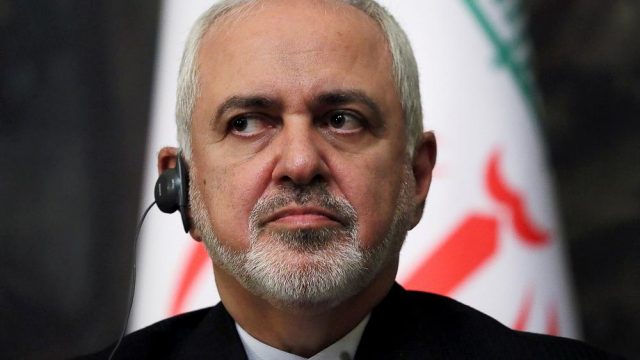
France, Britain, and Germany say they fear the Iran 2015 nuclear deal is at risk of falling apart over escalating tensions in the Persian Gulf.
In a joint statement, they called for a dialogue between all parties to resume:
“The risks are such that it is necessary for all stakeholders to pause, and consider the possible consequences of their actions.”
“We believe that the time has come to act responsibly and to look for ways to stop the escalation of tension and resume dialogue.”
Signed on this day four years ago, the agreement aimed to extend the amount of time it would theoretically take Iran to produce enough fissile material for an atomic bomb — so-called breakout time — from several months to a minimum of one year until 2025.
But after the US pulled out of the agreement last May and reimposed sanctions on Iran, Tehran said it would no longer respect some of its obligations.
Defying a warning by the European parties to the pact to continue its full compliance, Tehran has amassed more low-enriched uranium than permitted and it has started to enrich uranium above the 3.67% permitted by the agreement.
Tensions were further stocked last week when Britain seized an Iranian tanker off the coast of Gibraltar on suspicion of violating sanctions against Syria.
Iran has demanded Britain release the ship and denies it was taking oil to Syria in violation of European Union sanctions.
British Foreign Minister Jeremy Hunt told his Iranian counterpart on Saturday (July 13) that Britain would facilitate the release of the detained Grace 1 oil tanker if Tehran gave guarantees it would not go to Syria.
He said the call had been constructive and Mohammad Javad Zarif had told him that Iran wanted to resolve the issue and was not seeking to escalate tensions.
In a televised speech on Sunday, Iranian President Hassan Rouhani said Iran is ready to hold talks with the United States if Washington lifts sanctions and returns to the 2015 nuclear deal.
U.S. President Donald Trump’s administration says it is open to negotiations with Iran on a more far-reaching agreement on nuclear and security issues.
But Iran has made any talks conditional on first being able to export as much oil as it did before the US withdrew from the pact.
Sources familiar with the matter said on Sunday that the US granted a visa to Mohammad Javad Zarif to attend a U.N. meeting in New York this week, saying Secretary of State Mike Pompeo had approved the decision.
Had Pompeo not approved the visa it could have been a signal that the United States was trying to further isolate the Islamic Republic.







